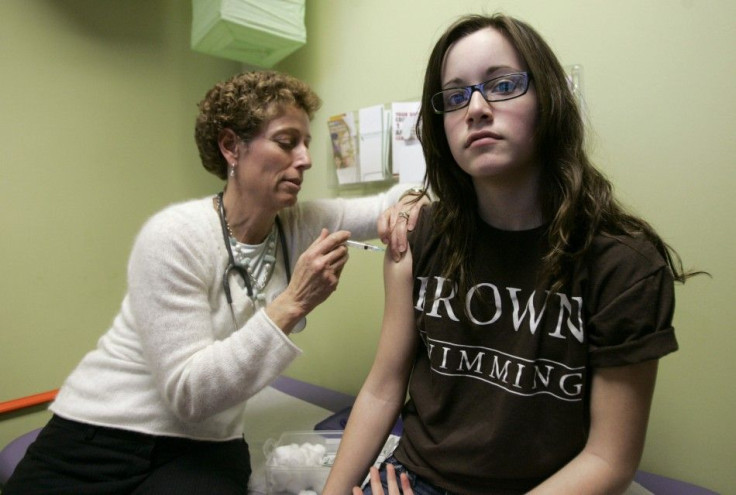Fund Backs Cervical Cancer Vaccine in Poor Nations

LONDON (Reuters) - The GAVI international immunizations group has agreed to fund the roll-out of vaccines against cervical cancer in developing countries, offering protection against a disease that kills one woman every two minutes.
Nearly 90 percent of the 275,000 deaths every year occur in poor nations, where cervical screening programs that are routine in rich nations are virtually non-existent.
The Global Alliance for Vaccines and Immunisation said up to 2 million girls in nine developing countries could be protected from cervical cancer by 2015 under the program, which still depends on negotiating a final price deal with manufacturers.
Nina Schwalbe, its managing director for policy and performance, said discussions were ongoing with the makers of the world's two approved HPV vaccines, Merck & Co Inc and GlaxoSmithKline Plc.
Human papillomavirus, or HPV, is a sexually transmitted virus that causes most cases of cervical cancer.
Adolescent girls are commonly vaccinated against HPV in Europe and the United States but the greatest need for the vaccine is actually in the developing world, where the burden of disease is far higher.
For women in developing countries this is the only option, Schwalbe said in a telephone interview from Dhaka, where a GAVI board meeting gave the green light to the initiative.
The introduction of an HPV vaccine is a major public breakthrough -- but to date this vaccine has only been available for women who live in developed countries.
For GAVI, which was set up a decade ago with backing from governments and Microsoft Corp co-founder Bill Gates, the decision to back HPV vaccination marks a step change, since until now it has been focused on vaccinating infants.
Merck's Gardasil and GSK's Cervarix are designed for use in girls aged between 10 and 13 years.
The first developing countries could be up and running with vaccination programs from 2013, with Rwanda and Vietnam -- both of which have conducted pilot vaccination programs -- likely to be among the first.
U.S. drugmaker Merck said earlier this year it would offer GAVI its Gardasil shot at a discounted price of $5 per dose, implying a cost of $15 for a three-dose course. Schwalbe described this as a good starting offer.
Britain's GSK has not made a public price offer.
GAVI's move to close inequalities in access to HPV vaccination was welcomed by UN Secretary-General Ban Ki-moon, who also praised a separate plan by the Geneva-based group to open a funding window for vaccines against the rubella virus, which can lead to birth defects.
(Reporting by Ben Hirschler; Editing by Elaine Hardcastle)
© Copyright Thomson Reuters 2024. All rights reserved.






















